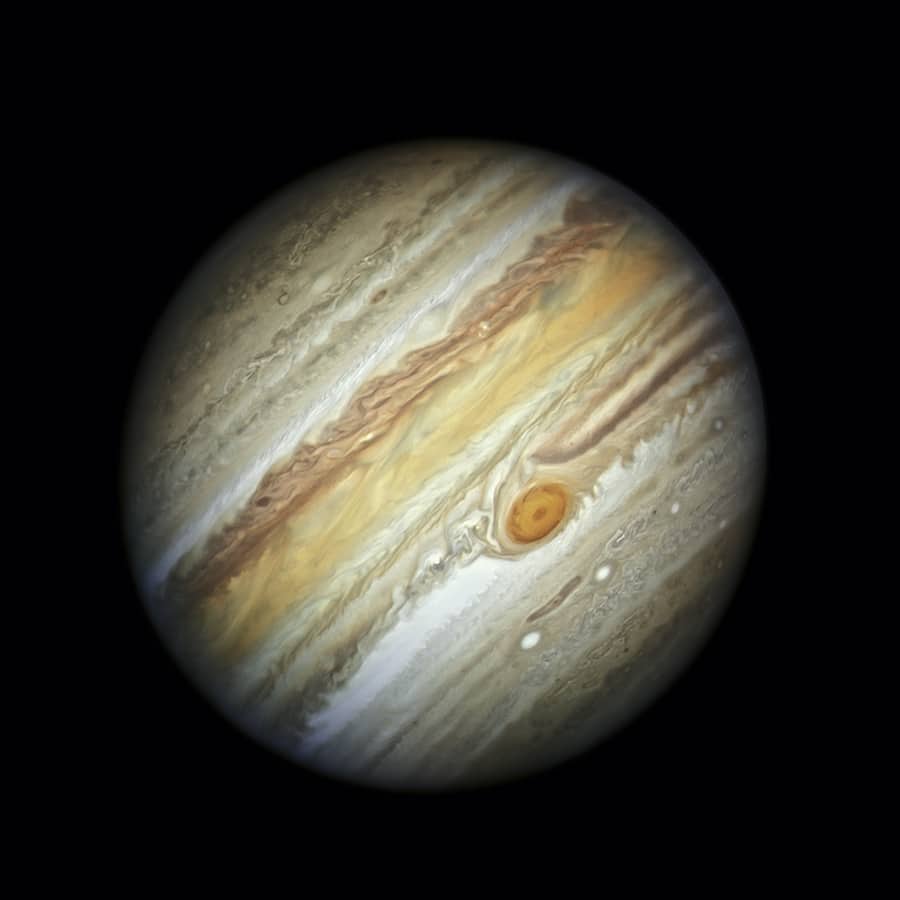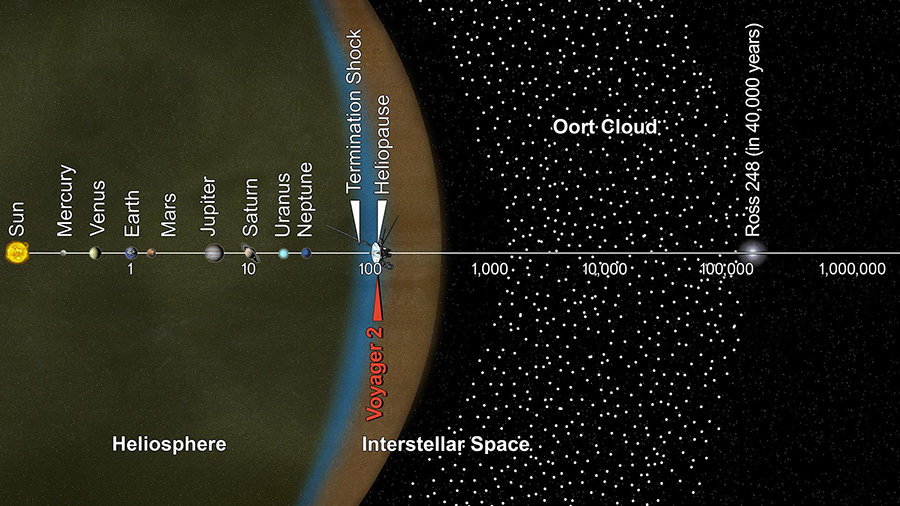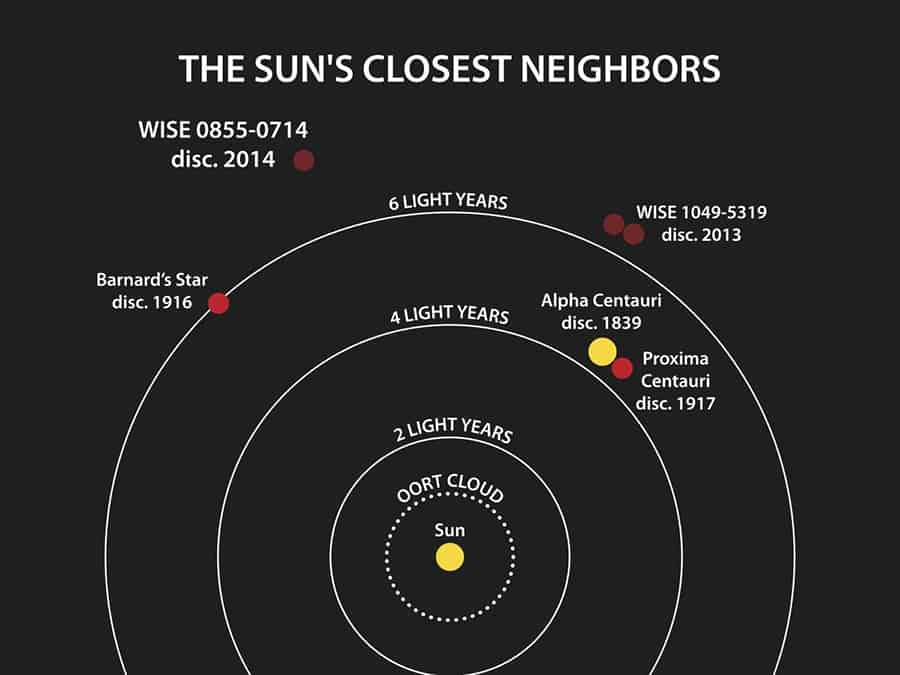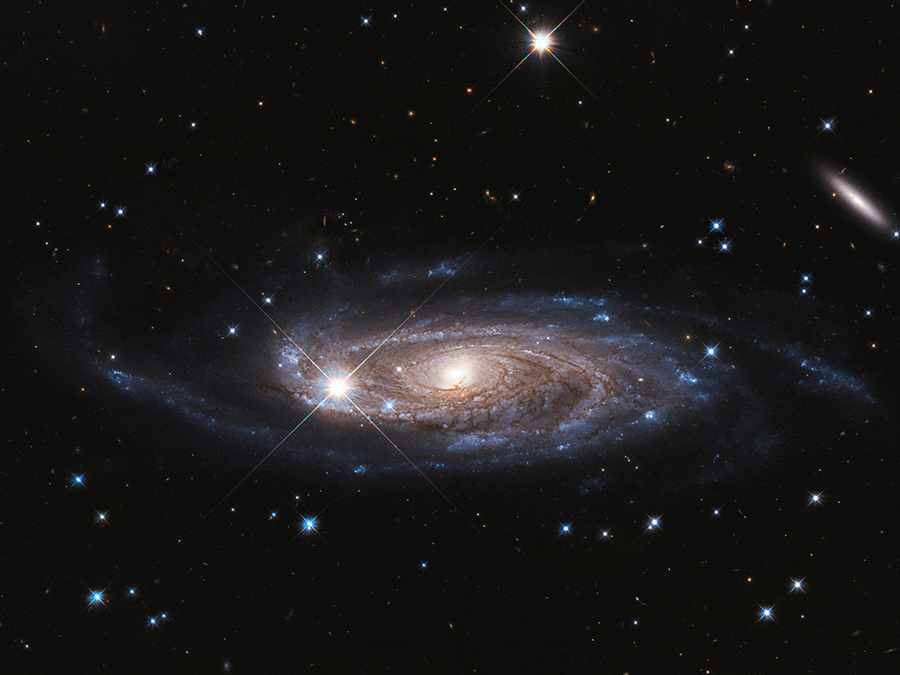I’ve found a surefire way to humble yourself, and it’s a trick that’s been used by the ancients for thousands of years to calm their minds.
All you have to do is look up into the night sky and embrace the infinite twinkling stars that seem to gaze back at you. Trust me, it’s not only the easiest but also the most effective slice of humble pie you’ll ever taste.
Perspective is the secret ingredient to humility
How you see life shapes your perception of yourself. Imagine thinking you’re the best basketball player in a town of 15,000 people. At 6’2″, you tower over your competition and nothing fazes you.
Then, you move to Los Angeles, hoping to join a college team. Suddenly, you’re just another fish in a vast ocean, and no one even gives you a second glance. Everyone around you is over 6’6″ and insanely athletic. Just like that, a fresh perspective on reality brings you crashing back to earth.
Perspective has the power to rewire your brain and transform your entire thought process.
My first time looking through a telescope

I’ll never forget the first time I peered through a telescope in fifth grade. My dad had set up this massive wooden telescope in our backyard on a crystal clear night with a gentle breeze that made me feel alive as it caressed my face.
Living away from the city, we had the luxury of an unpolluted night sky.
As I looked through the telescope lens, I was dumbstruck. Amidst the darkness, a small, vibrant circle floated, seemingly lost in space. It looked just like the posters hanging on my bedroom wall.
In that instant, I had to rewire my brain because what I saw felt unreal. It blew my mind that I was actually gazing at Jupiter—a planet hundreds of millions of miles from Earth and 318 times more massive.
Immediately, my curiosity about life skyrocketed, and I realized how incredibly small I was in the grand scheme of the universe.
The truth is, we all need a reality check at some point in our lives, and I firmly believe that staring into the night sky is a one-way ticket to humbling yourself.
The night sky holds the power to humble you in an instant
I’ve discovered that the night sky has numerous timeless qualities, and they only grow stronger as the night gets darker:
- The vastness of the universe
- A window into the past
- Slowing down life
- The realization that we’re made of stardust
We’ll dive into each of these qualities, to highlight their powers.
The vastness of the universe
Our Earth and the entire solar system are just a tiny speck in the vast expanse of the Milky Way galaxy. To illustrate this, consider NASA’s Voyager 2 spacecraft, which launched on August 20, 1977. The graphic below depicts the spacecraft’s distance traveled as of December 2018, with the x-axis representing Astronomical Units (AU). One AU is the distance from the Sun to Earth, roughly 93 million miles.

The Oort Cloud, a mix of ice and debris orbiting the Sun, lies a whopping 1,000 AU from the Sun at its inner edge, while its outer edge stretches to a mind-boggling 100,000 AU! Fast forward to today, and Voyager 2 is chilling about 119 AU from the Sun. It’s gonna take the spacecraft 300 years just to reach the inner Oort Cloud, and around 30,000 years to leave it behind.
And in about 40,000 years, Voyager 2 will come within 1.7 lightyears of a star named Ross 248. To give you an idea of how fast it’s going, Voyager 2 zooms through space at a blistering 35,000 miles per hour, covering roughly 3.26 light-years every 100,000 years.

But wait, there’s more! Our Milky Way galaxy measures a staggering 100,000 light-years across. If Voyager 2 wanted to cross the entire galaxy, it would take a jaw-dropping 1.7 billion years. And if that’s not enough to make your head spin, consider that there might be up to 2 trillion galaxies in the observable universe, with our own Milky Way housing a cool couple billion stars.
I could go on and on, but the point is, the universe is insanely huge, and Earth is just a tiny little speck.
A window into the past
When you look up at the stars, you’re actually peeking into the past. If a star is 100 light-years away, that means the light we see today left the star 100 years ago. Now, imagine an alien civilization 65 million light-years away with a crazy powerful telescope. They’d see dinosaurs stomping around on Earth, since that’s what was happening 65 million years ago.
And then there’s the fact that the average human lifespan barely scratches 70 years. Yet when we gaze into the night sky, we’re witnessing light from millions of years ago. Talk about humbling! Plus, the speed of light is a mind-blowing 186,282 miles per second, just to drive home the sheer vastness of the universe.
Slowing down life
Life these days feels like a never-ending race, packed with to-do lists that seem to grow instead of shrink. But when I look up at the sky, I find comfort in the stars—those eternal, twinkling companions that always seem to be hanging out and shining down on us.
No matter how frantic our lives get, those shimmering lights will always be there, watching over us. They help us move our thoughts from the everyday to the extraordinary, nudging us to ponder questions like:
- What does the future hold for humanity?
- Will we ever leave our little blue rock?
- Can we venture deep into outer space?
- What other intelligent life forms are out there, contemplating their existence?
- Where did the universe come from?
- Are we really just a speck in the grand scheme of space and time?
- What does the future hold as galaxies drift apart and energy dissipates into the void?
- What other mysteries are waiting to be discovered?
These thought-provoking questions give us a unique perspective on life. They humble us, showing us just how little we know.
Suddenly, that pesky morning parking ticket doesn’t seem so important anymore…
The realization that we’re made of stardust
We’re made from stars. Yeah, those glowing celestial bodies up in the night sky are our creators.

Important Note: The death of stars produces heavy elements. When stars go through phases like supernovas, these elements shoot out into deep space. Some elements come together to form planets like Earth, eventually giving rise to humans.
In short, we’re the result of a chain of chemical reactions spanning billions of years. It’s mind-blowing and humbling. The odds of us evolving from stardust into who we are today seem almost impossible.
This realization makes you appreciate life and reminds you not to take anything for granted. It highlights our insignificance, yet at the same time our significance. Every element played a role in creating the universe we know today, including us. Carl Sagan said it best:
“We are a way for the cosmos to know itself.”
The ancients’ appreciation of the night sky
Our ancestors gazed at the same night sky we see today. The awe I feel when I look up connects me to the countless others who have shared this experience throughout history. In a way, it’s the transfer of ancient wisdom through the night sky.
Long ago, some believed the Earth was at the center of the celestial sphere, with the moon and sun revolving around it, and the stars as glowing specks on the inside of the sphere. Others thought that gods lived on the other side of the sphere, their divine light shining through as stars.
The ancient Egyptians, fascinated by the stars, aligned their pyramids and temples to the north. They believed their pharaohs would become stars in the northern sky after death. They even positioned the three largest Giza pyramids to match Orion’s Belt, with astounding mathematical precision. Their awe led them to humility.
It’s clear that the night sky has captivated humans across generations. Despite our scientific advancements, we’re no exception. The mystery and vastness of the universe will always serve to humble us. And all we need to do is tilt our heads up…
When and how to humble yourself

Let’s face it, we’re all human and our emotions can sometimes get the best of us. Unless you hit that blissful state of nirvana (where desires and suffering vanish), you’ll need a way to keep yourself grounded.
One way to do that? Gazing into the night sky. It has this soothing power that helps calm emotions like jealousy and anger, reminding you that life goes on no matter the hurdles. Just don’t let life’s fast pace make you miss the cosmic wisdom above.
Perspective with negative human emotions
In the blink of an eye, all the things that have ever made you green with envy will vanish into thin air in just a hundred years. And really, a century is just a blip on the cosmic timeline.
Our universe has been around for a staggering 13.7 billion years. So getting all worked up with jealousy doesn’t make sense when you put it into perspective. I’ve learned to tame that wild instinct by keeping the bigger picture in mind.
Sure, anger can rear its ugly head now and then. But gazing at the vast expanse of the night sky helps me cool down and extinguish any brewing rage.
As a space enthusiast, I always have a telescope within arm’s reach. It not only feeds my passion for stargazing but also soothes my restless mind.
So, do yourself a favor and get a telescope. Or at least, when life starts getting you down, escape to a quiet spot, far from the city lights, and let the twinkling stars work their magic. Trust me, it’s the best medicine.
The endless rush to do more and more
Life can feel like an endless competition, where we’re always trying to outdo each other. We sacrifice sleep to tick off tasks on our never-ending to-do lists. But really, how far are you willing to go?
If you take a step back, you might find you’re chasing things that don’t even make you happy. The night sky, though, has a way of putting everything in perspective. It shows us how insignificant our impact really is in the grand scheme of things.
Even if you did something Earth-shattering (like, literally shattering Earth), it wouldn’t matter cosmically. So being a trillionaire or an A-list movie star? No big deal. You’re not changing Earth’s course.
Sure, over generations, we might impact beyond our planet. We could even harness the energy of black hole jets someday. But that’s likely to happen anyway, given the momentum of human advancements. That is, assuming we don’t self-destruct or get clobbered by a giant asteroid.
The takeaway? Do what makes you truly happy. Don’t torture yourself for validation by doing things you despise. Chasing a legacy is nothing more than smoke and mirrors.
Focused reflection on your thoughts will humble you
The night sky helps you zero in on what truly brings you joy. It reminds you of the beauty and rarity of life.
Otherwise, you could end up living your life to someone else’s tune. And in the end, all tunes fade into the night sky. So why not dance to your own beat, when that’s all that really matters?
Find solace in the stars!
The night sky soothes me when life throws me curveballs. It also keeps my ego in check, which can naturally swell over time. It takes me back to simpler days when I’d lose myself in my childhood curiosities for hours on end.
“How to humble yourself?” wrap up
I think the rise of modern cities has taken away a vital part of the human experience. Artificial lights drown out the night sky, leaving us blind to the cosmic insights we crave. And with so many people struggling with their inner demons thanks to modern comforts, it’s more important than ever to reconnect with the stars.
I always encourage people to experience the awe of a pitch-dark sky at least once. And if you ever get the chance, visit the Keck Observatory in Hawaii. It’s a life-changing experience and the best gift you can give yourself.
In the end, the night sky pulls you out of the rat race and frees you from the emotional chains of your limbic system, the part of your brain controlling emotions. The same emotions that trap so many of us in mental cages today.
What’s your go-to way to humble yourself? Do you find stargazing impactful?
Featured Image Photo Credit: Greg Rakozy (image cropped)

I was outside in my garden gazing up to the stars for a good few hours as tonight has been incredibly clear, I felt overwhelmed and humbled like never before and all the problematic thoughts going around in my head seemed to slowly melt away. I felt humbled by life all of a sudden and wondered if anyone else had this feeling, surly it wasn’t just me…. so I googled ‘does star gazing humble you.’ That’s when I cabe across this article and it made everything so clear and even more humbling …Thankyou !
Matthew: perfectly said!
One of the greatest teachers is only a head tilt up away…
what you know is something great